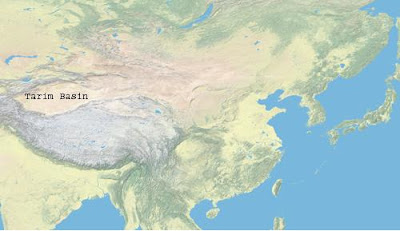Shugendō Now
On March 3, there was a film screening of Shugendō Now, hosted by the Center for East Asian Studies and cosponsored by the Center for Cinema Studies at Penn. Director Mark McGuire was at the screening and he introduced himself, the film, the process by which the film had become a reality, and his work today. Particularly interesting were the ways in which he managed to “show” the viewer the Shugendō experience, as opposed to “telling” the viewer through interviews, historical footage, or other means as might be expected in a traditional documentary. The movie observed how the lives of several different men were changed by undertaking a journey through the world of Japanese mountain asceticism. Among dozens of other men, these individuals included a cement plant owner, a nightclub owner, and a blue-collar laborer. Despite the proximity to spring break, the film captivated the audience.
Directed by Mark McGuire and Jean-Marc Abela, the film strives to give the viewer an intense immersion experience in the world of Shugendō beliefs and practices. Described as a “poetic” film, it is not as bland or rigidly structured as documentaries are often thought to be. Shugendō, roughly meaning “Way of Acquiring Power,” can be considered a religion with countless influences from esoteric Buddhism, Shinto, Daoism, and possibly others. The film explores one particular theme: how the experience of a purification ritual involving a lengthy trip through the mountains of Japan can enhance urban life that characterizes Japanese daily life. Throughout the film, there are cut scenes to the previous lives of the individual characters, and back to the journey they are now taking through the mountains, as they undergo their spiritual transformation.
Surprisingly, there was little objection to the filming of any of this ritualistic journey, and the viewer is able to experience an incredibly personal, intimate portrayal of the practice. From the very beginning of the journey, to meals, to the actual walking, to the re-entering of society, we are able to experience everything seemingly first hand.
Following the film, McGuire answered questions posed by audience members. He answered three questions; one about meals eaten on the journey, another about transitioning from the ascetic experience to former urban life, and finally one about controversial graffiti scribbled on the sign over entrance to the region in which they would be traveling. He answered that throughout the journey, they did eat exclusively vegetarian meals, as vegetarian is seen to be purer than meat. Also, he mentioned rather humorously that when one finished the journey, he is “too pure” and must de-purify himself to an extent, perhaps by drinking sake and eating some beef.
Finally, there was a question involving graffiti on a sign that read, “Is this religios [sic] or just plain male chauvinism?” The sign itself originally read nyonin kinsei, which means women are excluded, except that “nyo,” meaning women, was “conspicuously missing,” as Barbara Ambros notes in her review of the film (see link below). This refers to women being excluded from the practice on the grounds that they are spiritually impure due to menstruation, or “red pollution,” known as aka-fujo. Also, McGuire informed us that if there was a recent death in one’s family or among close friends, they may not be permitted on the journey, as it would be considered impure, or “black pollution,” or koku-fujo. It may be speculated that an ardent feminist scribbled this, but it should also be known that there are some female Shugendō practitioners who like the idea of there being “something to strive for, yet also being unattainable,” noted McGuire. Overall, there was a general consensus that his film had accomplished what it had set out to do; it gave the viewer a tangible experience of what it was really like to engage in this Shugendō ritual, from beginning to end.
McGuire, Davidson ’96 and Cornell 94, is a professor of humanities at John Abbot College in Montreal. There, he teaches many classes concerning a wide range of topics, including Japanese religion, culture, film, politics, and sustainability. He mentioned one of his goals is to engage students as stewards and global citizens in an ever increasingly materialistic and faster-paced society. Jean-Marc Abela is a self-taught filmmaker who is also affiliated with the John Abbot College in Montreal. There will be another screening at Davidson College on April 12 at 7:00PM.
Shugendo Now website:
Event at Davidson, April 12, 7:00PM:
An incredible wealth of information on Shugendō history, prominent figures, influences, geography, practices, beliefs, and other sources can be found here:
A review of the film by Barbara Ambros of University of North Carolina at Chapel Hill:
F. Miller - SAS 2013


Comments
Post a Comment
We follow the House Rules as outlined by the BBC here.